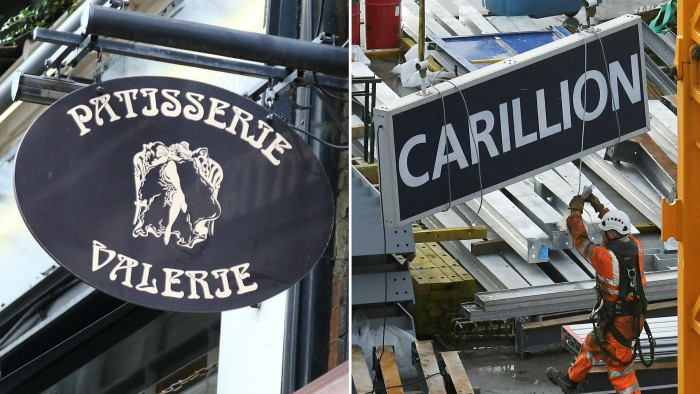UK auditors ordered to do more to spot fraud ahead of shake-up

Simply sign up to the UK financial regulation myFT Digest -- delivered directly to your inbox.
The UK accounting regulator has ordered auditors to do more to identify fraudulent misstatements in company accounts ahead of a big shake-up of audit and corporate governance rules following a series of business scandals.
The Financial Reporting Council said stiffer requirements would clarify the role of auditors in spotting fraud, while addressing concerns raised in an independent review of the industry in 2019 by Sir Donald Brydon, former chair of the London Stock Exchange.
Auditors have been under the spotlight for failing to flag suspected frauds at Patisserie Valerie, the Aim-quoted café chain that collapsed in 2019, and London Capital and Finance, an investment group that owed ordinary investors £237m when it went bust in the same year.
The FRC’s move will make auditors’ obligation to detect fraud more robust than under the international standard at present adopted by the UK.
“Sometimes the UK needs to show leadership, and move in advance of international standards to address urgent stakeholder concerns in the public interest,” said Mark Babington, executive director of regulatory standards at the FRC.
“We believe that some of the misunderstandings that have been communicated around the auditor’s responsibilities in respect of fraud meet this test.”
The revised standard “makes auditors’ obligations clearer, enhances the risk assessment they carry out, and sets clearer requirements for what the auditor then does”, he added.
The updated version of the current audit standard known as ISA 240 will require auditors to obtain “reasonable assurance” that company accounts are not misstated due to fraud.
It also recognises that “the risk of not detecting a material misstatement resulting from fraud may be higher than the risk of not detecting one resulting from error”.
According to the updated standard, “reasonable assurance is a high, but not absolute, level of assurance”, meaning that auditors will not necessarily be expected to spot every fraud provided they carry out the appropriate checks.
Auditors have long complained about an “expectation gap” between what the public expects of them and what their role actually involves.
David Dunckley, chief executive of Grant Thornton, which is under investigation over its audits of Patisserie Valerie, came under fire from MPs and rivals when he told parliament in 2019 that audits were “not designed to look for fraud”.
The announcement of the new rules, which will be mandatory for audits of accounting periods beginning on or after December 15 2021, came after Sir Jon Thompson, FRC chief executive, agreed the watchdog had been “asleep at the wheel” during corporate failures such as those at Patisserie Valerie and Carillion.
The government is consulting on wide-ranging proposals to reform both the audit market and corporate governance of large listed and private companies.
The new rules would aim to break the dominance of the Big Four accountants — Deloitte, EY, KPMG and PwC — by requiring them to share FTSE 350 audits with smaller competitors.
The government is also proposing to hold company directors responsible for the accuracy of their accounts, with fines and bans for failings.
Comments